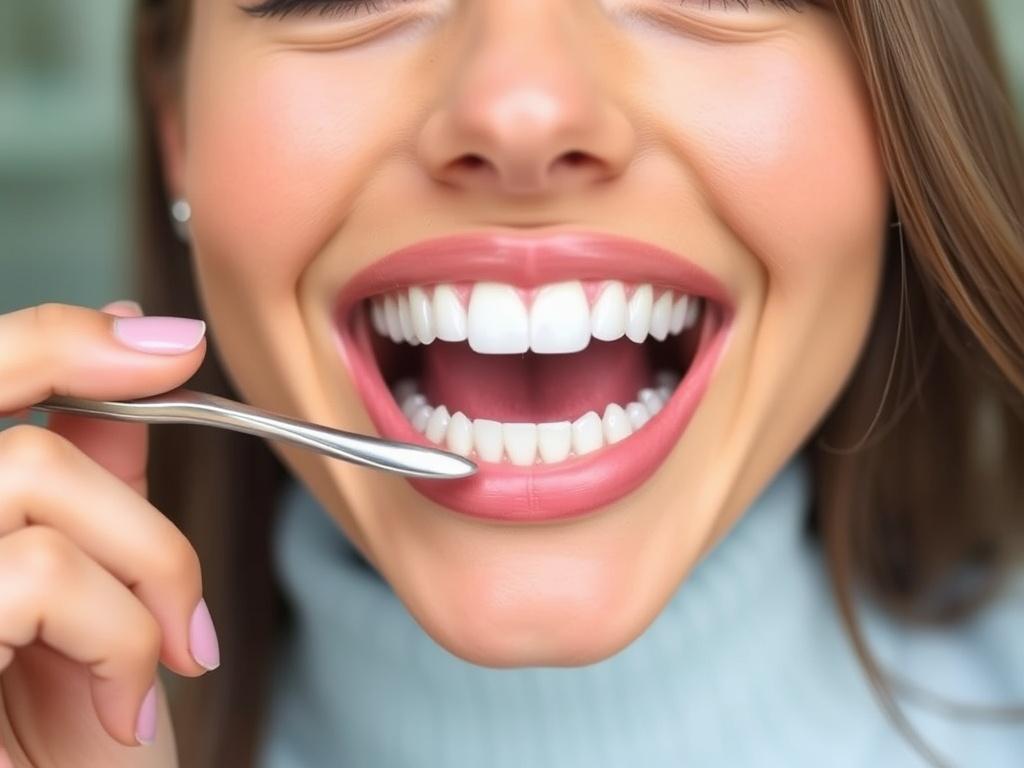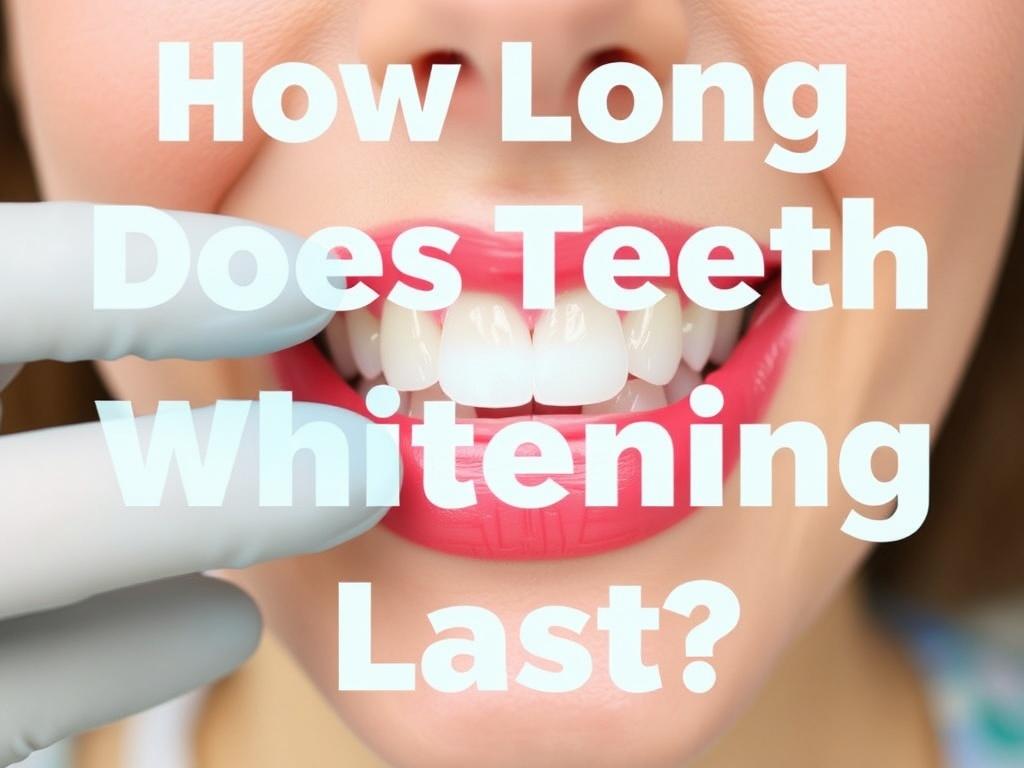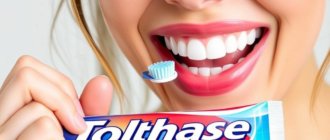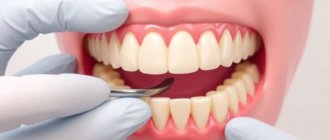Содержание
- 1 The Quest for a Brighter Smile: Why Teeth Whitening Is So Popular
- 2 How Teeth Whitening Works: An Overview
- 3 Factors That Influence How Long Teeth Whitening Lasts
- 4 How Long Do Professional Teeth Whitening Results Last?
- 5 At-Home Whitening Kits: What to Expect
- 6 Over-The-Counter Whitening: Quick, Affordable, but Temporary
- 7 Maintaining Your Whitening Results: Tips for Long-Lasting Bright Teeth
- 8 How Often Should You Get Teeth Whitening Done?
- 9 Potential Side Effects and What They Mean for Longevity
- 10 Common Misconceptions About Teeth Whitening Durability
- 11 When to Consult a Dentist About Teeth Whitening
- 12 Exploring Natural Alternatives: Do They Last Longer?
- 13 Summary Table: How Long Does Teeth Whitening Last by Method
- 14 Conclusion
The Quest for a Brighter Smile: Why Teeth Whitening Is So Popular
Have you ever caught a glimpse of your smile in the mirror and wished it was a little brighter? You’re not alone. Teeth whitening is one of the most sought-after cosmetic dental treatments worldwide. From stains left by your morning coffee to discoloration from age or lifestyle habits, an increasing number of people turn to teeth whitening to regain that youthful, dazzling smile. But after investing time, effort, and sometimes money into whitening your teeth, you might be wondering: **how long does teeth whitening last**? That’s the question we’ll explore in depth today.
Understanding the longevity of teeth whitening is a bit like peeling an onion—it comes down to numerous layers. Factors such as the method used, your oral hygiene habits, diet, and genetics all play crucial roles. This article aims to walk you through the science behind teeth whitening, discuss different whitening options, identify what affects how long your bright smile lasts, and give you practical tips to maintain that sparkle for as long as possible.
How Teeth Whitening Works: An Overview
0
Before diving into the question, “how long does teeth whitening last,” it’s important to understand what happens during the whitening process. Teeth get their color from the combination of enamel (the hard, outer layer) and dentin (the layer beneath). Over time, enamel can become stained or darkened by substances like coffee, tea, red wine, tobacco, and certain medications.
Most teeth whitening products and treatments use active ingredients like hydrogen peroxide or carbamide peroxide to break down stains and lighten the teeth. These bleaching agents penetrate the enamel and dentin, breaking apart discoloration molecules and restoring a whiter appearance.
There are many ways to whiten teeth:
- In-office professional whitening: This method uses a high concentration of bleaching agents, often activated by heat or light, to produce dramatic results quickly.
- At-home whitening kits from your dentist: Custom trays with professional-grade whitening gel that you wear for a specified period daily or nightly.
- Over-the-counter whitening products: These include whitening strips, gels, toothpaste, and rinses, which usually have lower concentrations of bleaching agents.
- Natural methods: Such as brushing with baking soda or oil pulling, though these methods lack strong scientific proof for effectiveness.
Each of these methods has a different impact on how long the whitening lasts, and we’ll break down their pros, cons, and durability soon.
Factors That Influence How Long Teeth Whitening Lasts
So now that you have the basics, the burning question remains: **how long does teeth whitening last?** The honest answer is, it varies greatly depending on multiple factors. Let’s explore these in detail.
1. Type of Whitening Treatment Used
The first and biggest factor is the **type of whitening treatment** you choose.
| Whitening Method | Typical Duration of Results | Pros | Cons |
|---|---|---|---|
| In-office professional whitening | 6 months to 2 years | Fast, dramatic results; supervised by dentist | More expensive; possible sensitivity |
| At-home dentist kits (custom trays) | 1 to 3 years | Customized fit; longer-lasting than OTC | Slower process; requires discipline |
| Over-the-counter products (strips, gels) | 1 to 3 months | Affordable; easy to access | Less effective; shorter-lasting |
| Whitening toothpaste and rinses | Temporary/maintenance only | Keeps stains at bay | Cannot produce major whitening |
Professional whitening tends to last the longest due to higher concentrations of bleaching agents and tailored applications. Conversely, over-the-counter solutions provide shorter-term improvements.
2. Individual Lifestyle and Habits
Your habits can dramatically affect how long teeth whitening lasts. If you regularly consume stain-causing foods and drinks, expect your results to fade faster. Coffee, tea, red wine, cola, and smoking are common culprits that discolor teeth over time. Even sauces like soy or tomato can add to surface stains.
It’s also essential to consider oral hygiene. Brushing twice daily, flossing, and regular dental cleanings help maintain whiteness by removing plaque and surface stains.
3. Your Oral Environment and Genetics
Some people simply have naturally darker teeth or thinner enamel, which affects how well whitening products work and how long results last. Enamel thickness and tooth porosity are genetically variable, meaning that even with similar treatments and habits, outcomes can differ from person to person.
4. Maintenance Post-Whitening
Maintenance is key. Using whitening toothpaste and avoiding stain-causing substances help prolong results. Many dentists recommend “touch-up” whitening treatments every six months to a year to maintain the brightness.
How Long Do Professional Teeth Whitening Results Last?
Professional whitening, performed in a dental office, offers some of the most immediate and lasting effects. Typically, results can last anywhere from six months to two years, and in some cases, even longer. This longevity depends heavily on the patient’s lifestyle and maintenance routine.
Professional treatments often use stronger peroxide concentrations than home kits, and dentists can protect sensitive areas and minimize side effects. Because of the strength and precision, the enamel is likely to stay whiter longer compared to other methods.
At-Home Whitening Kits: What to Expect
If professional whitening isn’t an option, dentist-supervised take-home kits are a great alternative. These kits include custom trays and whitening gel, which patients apply over several weeks.
Results are less instant than in-office sessions but tend to last longer than over-the-counter products—often between one to three years if maintained properly. The custom fit means better gel coverage and less gum irritation, contributing to a more effective and comfortable whitening experience.
Over-The-Counter Whitening: Quick, Affordable, but Temporary
Over-the-counter products are the most accessible. From whitening strips and gels to toothpaste and rinses, these products can brighten your smile, though typically with less dramatic effects and for a shorter duration.
Most OTC whiteners contain lower concentrations of bleaching agents, so they take longer to show results, which tend to fade within a few months. However, these products are excellent for maintaining whiteness after a professional or at-home treatment.
Common OTC Whitening Products
- Whitening strips
- Whitening toothpaste with mild abrasives
- Whitening rinses/mouthwashes
- Whitening pens and gels
Maintaining Your Whitening Results: Tips for Long-Lasting Bright Teeth

So, you’ve whitened your teeth—now what? Let’s cover some useful strategies to keep your smile bright for as long as possible.
1. Maintain Good Oral Hygiene
Simple habits go a long way. Brush your teeth at least twice a day with fluoride toothpaste, floss daily, and schedule regular dental cleanings to prevent plaque buildup and stains.
2. Avoid or Limit Staining Foods and Drinks
Try to minimize your consumption of coffee, black tea, red wine, cola, berries, soy sauce, and curry. Drinking these through a straw can also reduce contact with your teeth, helping avoid stains.
3. Quit Smoking or Using Tobacco
Tobacco products cause stubborn yellow and brown stains. Quitting not only helps keep your teeth whiter, but also drastically improves overall oral health.
4. Use Whitening Toothpaste or Touch-up Products
Incorporate whitening toothpaste or occasional use of whitening strips to help maintain results between professional or home treatments.
5. Stay Hydrated and Rinse After Eating
Drinking water after meals helps wash away staining agents. Rinsing can reduce the impact of pigmented foods and beverages.
How Often Should You Get Teeth Whitening Done?
Wondering how often you can refresh your smile? This will depend on your method of whitening, tooth sensitivity, and lifestyle.
| Whitening Method | Recommended Re-Whitening Frequency | Additional Notes |
|---|---|---|
| In-office professional whitening | Every 6 months to 1 year | Depends on dentist’s advice and lifestyle |
| At-home dentist kits | Every 1 to 2 years | Can be repeated with dentist supervision |
| Over-the-counter products | Every 3 to 6 months | Shorter intervals, but monitor sensitivity |
| Whitening toothpaste and rinses | Daily for maintenance | Does not replace professional whitening |
Remember, overwhitening or too frequent treatments can lead to tooth sensitivity and enamel damage. Always follow product instructions and consult your dentist if uncertain.
Potential Side Effects and What They Mean for Longevity
While teeth whitening is generally safe, some people may experience side effects such as tooth sensitivity, gum irritation, or uneven whitening. These issues typically resolve with time but may impact your ability to enjoy whitening treatments regularly.
Sensitivity, especially, can limit how frequently you can undergo whitening. Using desensitizing toothpaste or consulting your dentist can help manage these effects.
Common Misconceptions About Teeth Whitening Durability
It’s worth addressing a few myths surrounding the longevity of teeth whitening:
- Myth 1: Whitening is permanent. In truth, no whitening treatment lasts forever; teeth naturally stain over time.
- Myth 2: Whitening weakens your teeth. Properly performed whitening does not damage enamel but excessive use can cause sensitivity.
- Myth 3: Over-the-counter whitening is as effective as professional whitening. OTC options help but generally aren’t as long-lasting or dramatic as professional treatments.
When to Consult a Dentist About Teeth Whitening
If you’re considering whitening your teeth, or if your results don’t seem to last as long as you’d hoped, it’s a good idea to talk to your dentist. They can recommend the best treatment personalized to your teeth’s condition, lifestyle, and desired results.
Moreover, your dentist can check for any underlying issues, such as tooth decay or gum disease, which should be addressed before whitening begins.
Exploring Natural Alternatives: Do They Last Longer?

Many people turn to natural methods like brushing with baking soda, activated charcoal, or oil pulling in the hope of whitening teeth gently. While these might help remove surface stains, they do not bleach teeth like peroxide-based treatments.
Because natural methods don’t bleach teeth, they do not provide the same degree of whitening or longevity. However, they can be safe supplements to oral hygiene and stain prevention.
Summary Table: How Long Does Teeth Whitening Last by Method
| Whitening Method | Approximate Duration of Results |
|---|---|
| In-office professional whitening | 6 months to 2 years |
| At-home dentist whitening kits | 1 to 3 years |
| Over-the-counter whitening strips/gels | 1 to 3 months |
| Whitening toothpaste and rinses | Temporary, maintenance only |
Final Thoughts: Balancing Expectations and Care
Teeth whitening is a fantastic way to boost your confidence and brighten your smile. However, understanding that the results won’t last forever and depend heavily on your choices helps set realistic expectations. Professional whitening treatments tend to offer longer-lasting results but come at a higher cost, whereas over-the-counter options are more affordable and accessible but need more frequent touch-ups.
Maintaining your newly whitened teeth requires dedication: avoiding stain-causing substances, practicing excellent oral hygiene, and scheduling periodic whitening treatments as needed. By doing so, you can enjoy a radiant smile that brightens your face and lasts as long as possible.
Conclusion
In the end, **how long teeth whitening lasts** varies widely based on treatment type, lifestyle habits, genetics, and how well you care for your teeth afterward. Professional whitening can keep your teeth bright for up to two years or more, while over-the-counter methods generally last only a few months. Crucially, maintaining good oral hygiene, limiting exposure to stain-inducing foods and drinks, and using maintenance products will extend your results significantly. If you want to keep that glowing smile shining brightly, regular dental check-ups and touch-ups are the way to go. Remember, a beautiful smile is less about achieving perfection once and more about nurturing your teeth consistently over time.







